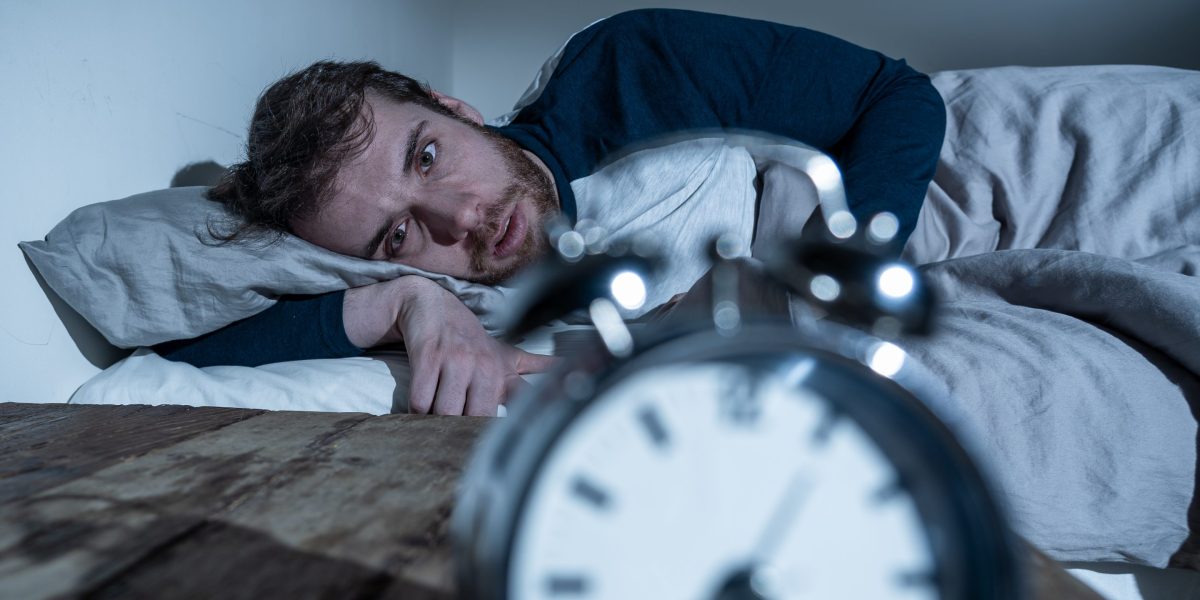You know the horrors a sleepless night can bring. They haunt you the following day: fatigue, headaches, irritability, and inability to focus, to name a few. Though sleep deprivation comes for us all on occasion, a new study suggests that habitually substandard shut-eye is linked to accelerated brain aging.
While poor sleep quality doesn’t necessarily cause speedier brain aging, researchers at the University of California, San Francisco (UCSF) and other U.S. institutions found that poor sleep quality in early middle age is associated with more signs of poor brain health in late middle age. Their findings were published Oct. 23 in Neurology, the medical journal of the American Academy of Neurology.
“Sleep problems have been linked in previous research to poor thinking and memory skills later in life, putting people at higher risk for dementia,” study coauthor Clémence Cavaillès, PhD, an epidemiologist at UCSF’s Center for Population Brain Health, said in a news release about the research. “Our study, which used brain scans to determine participants’ brain age, suggests that poor sleep is linked to nearly three years of additional brain aging as early as middle age.”
The study assessed nearly 600 people over the course of 15 years. At the outset, participants’ average age was 40. They completed a baseline survey about their sleep habits and were asked questions such as:
- “Do you usually have trouble falling asleep?”
- “Do you usually wake up several times at night?”
- “Do you usually wake up far too early?”
Five years later, they filled out the same questionnaire, which was designed to highlight these six characteristics of unhealthy sleep:
- Bad sleep quality
- Daytime sleepiness
- Difficulty falling asleep
- Difficulty staying asleep
- Early morning awakening
- Short sleep duration
Ten years after the follow-up survey, researchers used MRIs and machine learning to determine participants’ brain ages.
More sleep problems, faster brain aging
Each participant was placed into one of three groups based on how many poor sleep habits they had: low (one or fewer), middle (two to three), and high (four or more). People in the high group had an average brain age that was 2.6 years older than that of the low group. The middle group’s average brain age was 1.6 years older.
Bad sleep quality, difficulty falling asleep, difficulty staying asleep, and early morning awakening were associated with greater brain age, the researchers noted, particularly when those four characteristics were consistent over half a decade. However, the study authors also pointed out that the self-reporting of sleep hygiene leaves room for error.
“Our findings highlight the importance of addressing sleep problems earlier in life to preserve brain health, including maintaining a consistent sleep schedule, exercising, avoiding caffeine and alcohol before going to bed, and using relaxation techniques,” study coauthor Dr. Kristine Yaffe, director of UCSF’s Center for Population Brain Health, said in the news release. “Future research should focus on finding new ways to improve sleep quality and investigating the long-term impact of sleep on brain health in younger people.”
Tips for better sleep
Building and maintaining good sleep hygiene takes time, so be patient with yourself if your bedtime routine is out of whack. The Centers for Disease Control and Prevention recommends focusing on these habits for better sleep:
- Avoiding caffeine in the afternoon or evening
- Avoiding large meals and alcohol before bedtime
- Exercising regularly and maintaining a healthy diet
- Going to bed and getting up at the same time every day
- Keeping your bedroom quiet, relaxing, and at a cool temperature
- Turning off electronic devices at least 30 minutes before bedtime
If you think you may have a sleep disorder, such as insomnia or sleep apnea, your primary care physician can refer you to a sleep medicine specialist.
For more on building healthy sleep habits:
- Can’t get a good night’s rest? Watch out for these 8 ways you may be sabotaging your sleep
- I took Headspace’s guided sleep course and I’m finally getting a good night’s rest. Here are the 5 habits I learned
- Sleeping in on weekends could cut your risk of heart disease by up to 20%, new study shows
- Do men really sleep better than women? Experts explain
- Your boss is probably getting more sleep than you are, survey says. Here’s who catches more z’s than even CEOs, managers, and business owners
Subscribe to Well Adjusted, our newsletter full of simple strategies to work smarter and live better, from the Fortune Well team. Sign up for free today.



